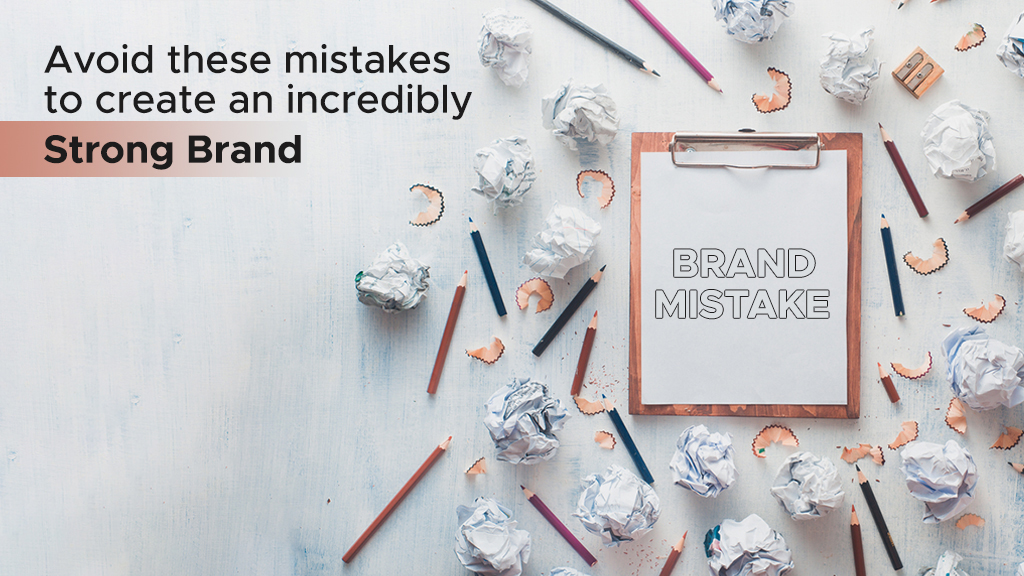Dec 16, 2021

No matter what the size of your business, the importance of a clear and consistent brand identity applies to you. Without a brand strategy, you risk selling products and services to a market that has no clear vision of who you are. This can eventually weaken your brand’s audience connection. Studies say that brands with strong reputations have 31% higher shareholder returns. Such organizations also have a more engaged workforce which can help a brand grow by three to four times faster than its competitors. Seeing just how worthwhile branding is, let us look at some crucial branding mistakes to avoid:
With well-established brand guidelines, you can properly organize your content on your website, social pages, and other properties. A cohesive brand styling guide helps create consistent messaging across all channels. With a brand guide, customers are likely to be confused about what your business stands for. It could also undermine the trustworthiness of your brand. Keep in mind the tone, voice, and writing style of your brand while creating a guideline. Fonts, color schemes, and proper logo placement are other visual elements that strengthen your brand identity.
While product and marketing departments are different business units, product departments are often more trusted by stakeholders compared to the marketing units. This leads to higher budgets allotted to them, while marketing teams are required to prove positive ROIs for every activation they run. In cases where marketing teams request additional spends, they rarely get approval. They are also the first to be hit by company-wide budget cuts. Together, these factors lead to companies disproportionately spending on product development with budgets for communication activities lagging behind. A strong brand reminds your customer why they should buy your product. Without this support, brands tend to experience a decline in customer loyalty and retention.
Any brand that thinks ‘everyone’ is their target audience is set to make a huge mistake. Focusing on everyone or the wrong audience means your brand has generic messaging. This further translates to low engagement and no sales. Make sure to pick the right target audience for your brand. Ask yourself some of the following questions to define your target audience:
Now that you know what to avoid to build a strong brand, here are some practices to strengthen your brand:
Creating and maintaining an effective brand isn’t something that can happen overnight as it involves consistency and dedication. We hope you’ll use the tips from this post and get one step closer to making sure your brand identity and messaging are on point.
